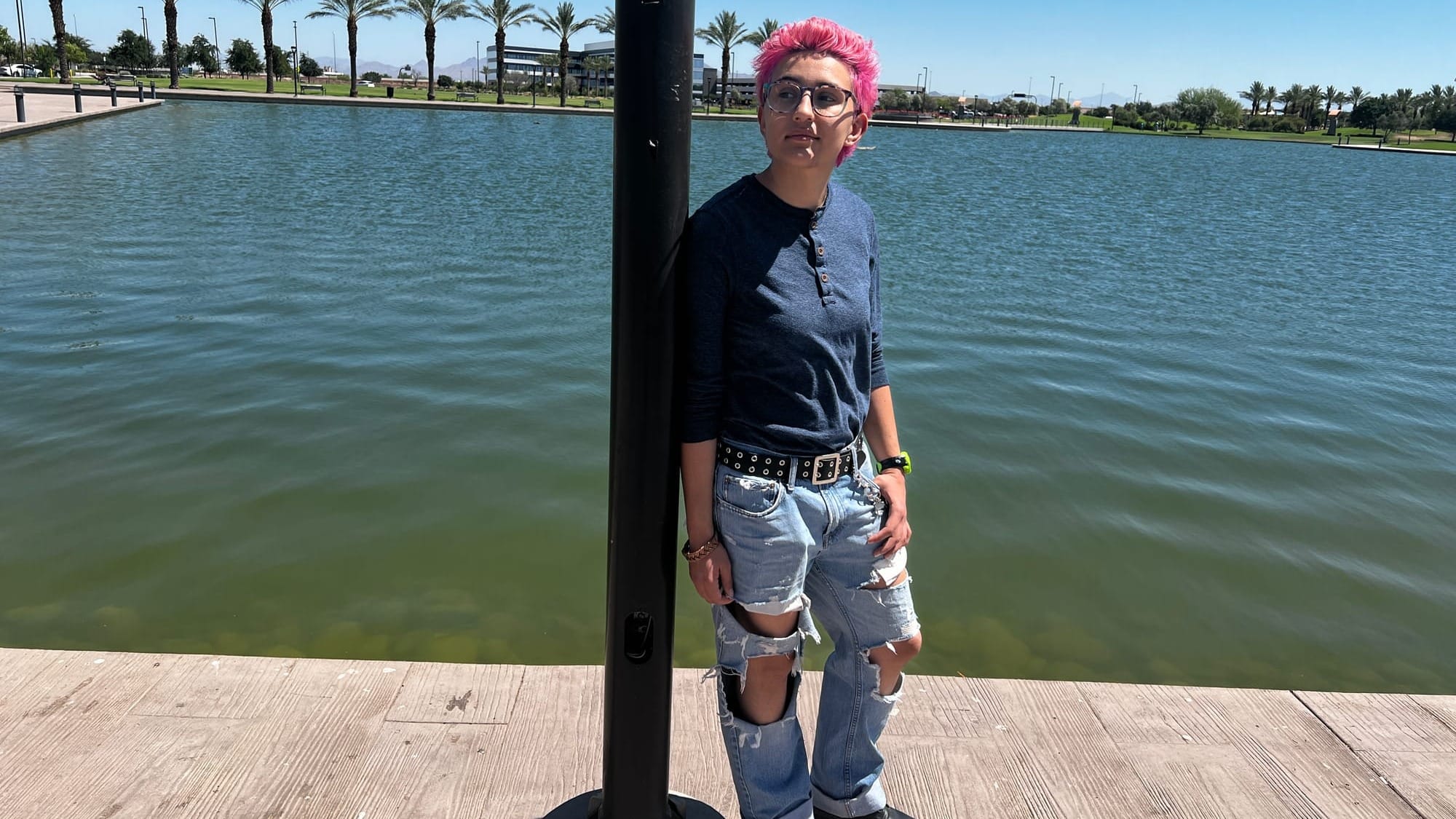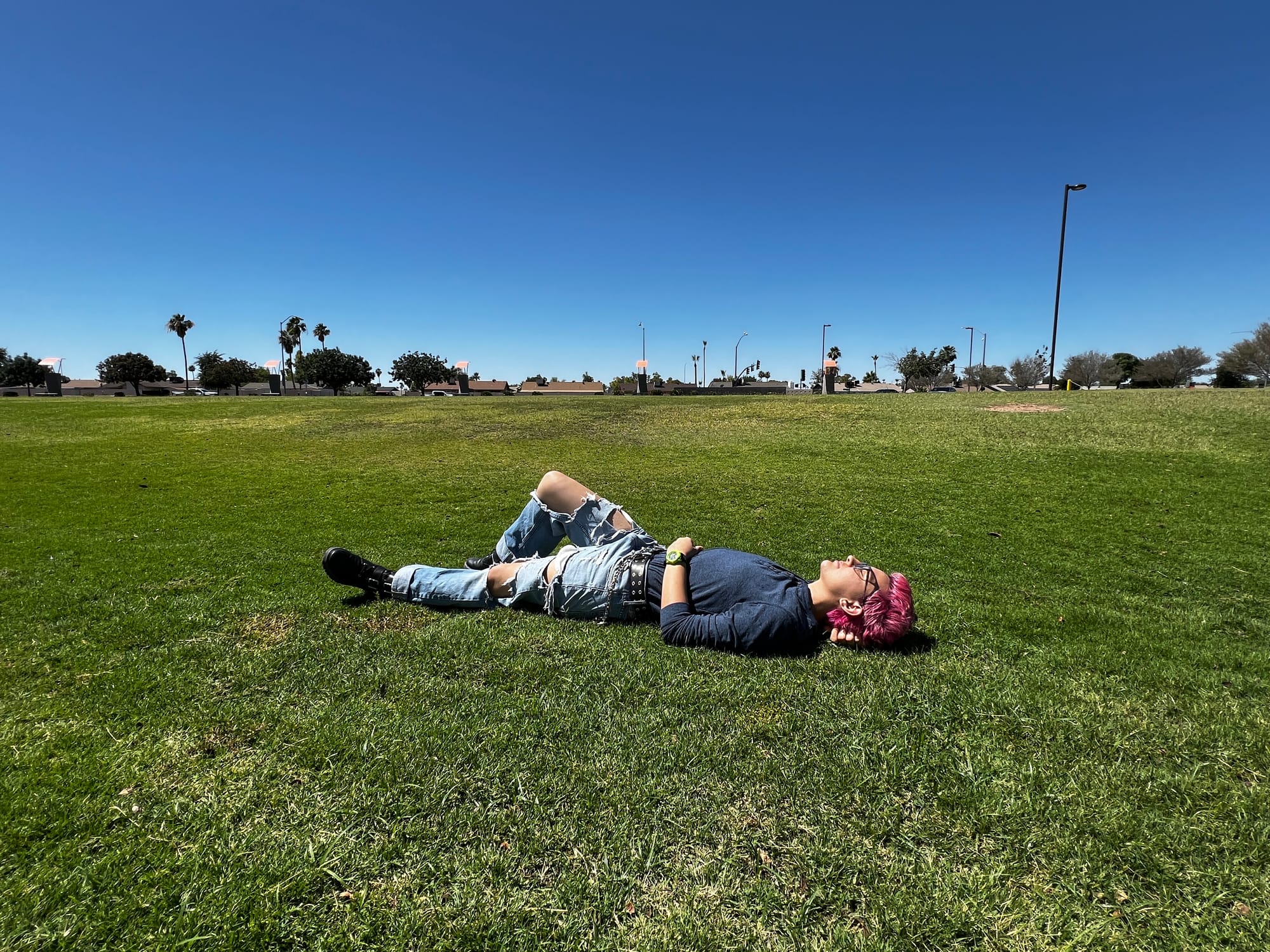Citing Funding Risks, Clinics Cancel Gender-Affirming Treatment for Adults
One adult patient of Planned Parenthood Arizona was told by phone Friday night that the treatment she receives for gender-affirming care was "paused."
Hear their voices: Gina Griffiths (Phoenix, AZ.) and TV Alford (Mesa, AZ)

Gina Griffiths is a mother of three children who lives in the greater-Phoenix area. She says she's an active participant in her children's education, especially since the oldest of hers has come out as being transgender and is also on the autism spectrum.
When it comes to the education her child received on their body and others' around them—including learning about consent—she's giving the state a failing grade.
"Sex Ed in Arizona is inadequate—absolutely, just appallingly inadequate," she said.
Griffiths said that while she is a big supporter of her kids’ school district, the sex education they received was only offered in sixth grade, and failed to address crucial aspects like consent and healthy relationships.
Griffiths said she believed Arizona’s current sex education is putting kids at risk for future violence.
"It's like we all exist because of sex, yet we can't talk about it and help people be safe," she said. She noted that the opt-in requirement for parents to sign off on teaching students sex education—mandated by Arizona state law—makes the problem worse and creates barriers for those who need it most.
Despite the lack of sex education in schools, Griffiths does her best to ensure her children have the information they need, fostering an environment where no topic is taboo. At home, Griffiths and her husband take a proactive approach to educating their children about sex, relationships, and consent: "We've always been very open and communicative as a family.”
The experience has heightened her awareness of the challenges faced by individuals at the intersection of LGBTQ+ and disability communities, and also gave her insight into what the state's parental rights movement has pushed to leave out of the conversation: caretakers for LGBTQ+ kids.
Griffiths' message to other parents is clear: get out and vote.
“Vote for school board members who aren't crazy," she said. “And vote for legislators who use and believe in science and facts.”

TV Alford's experiences highlight both the gaps and the occasional successes of sex education programs, providing insight into how these can be improved for future students.
Alford's public school sex education included single-day, one-off lessons in various grades throughout middle and high school. The lessons weren’t cohesive, he said.
In tenth grade, Alford was introduced to an optional assembly about healthy relationships and domestic abuse. This assembly, however, required students to sign up and was not widely advertised.
"It was just a [school] announcement,” he said. “So a lot of people weren't looking at those.”
He said it was also only available to students that weren't on academic probation—students with poor grades—and thus were allowed to miss a class.
Alford said the sex education lessons in younger years brought up and answered a lot of helpful questions for him, like what a urinary tract infection was.
But by seventh grade, "it became more of a, 'you need to abstain from sex' and 'look how scary STIs are,'" he said.

Alford criticizes the fear-based approach and the insufficient information provided, particularly the presentation style. His school used a dated video to teach him about sex: “I want to say it was from the '90s.”
Navigating information, especially from social media and friends, required a certain level of discernment. Alford trusted sources that aligned with his political views and identity, and his close friends became his main resource for information on sex.
The expectation that families fill the gaps left by schools in sex education is a common argument among certain political groups.
However, Alford's experience reflects that this isn't always effective: "I don't remember ever really talking about sex education with my parents," he said. "I think that it was something that they would be open to talking about, but I never initiated that conversation and neither did they, so it was something that we never talked about."
Alford highlights the awkwardness of such conversations and the reliance on unrestricted internet access for information.
Lacking guidance from both school and family, Alford turned to alternative sources: friends, social media, and, specifically, porn. He said it was how he “figured out pretty much what sex was and how it worked, logistically.”
If given the chance to change sex education in Arizona, Alford would opt for a more consistent and comprehensive approach.
"I think having it as a once a year one-day presentation makes the information very forgettable and very cheesy," Alford said. He advocated for a program that spans the school year, making discussions about sexual health more normalized and informative.
LOOKOUT Publications (EIN: 92-3129757) is a federally recognized nonprofit news outlet.
All mailed inquiries can be sent to 221 E. Indianola Ave, Phoenix, AZ 85012.